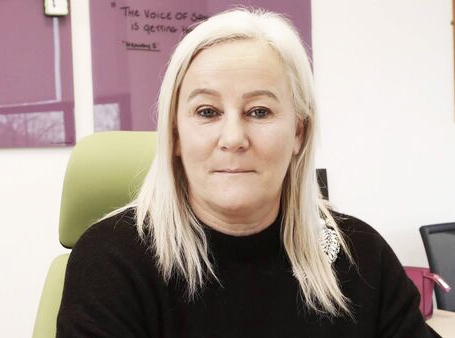
NEITHER the HSE nor UL Hospitals Group (ULHG) were commenting following a reports this week that the chief executive of the hospital group responsible for University Hospital Limerick, Professor Colette Cowan, had temporarily stepped aside pending the outcome of internal HSE enquiries into the death of teenager Aoife Johnston.
Ms Johnston died in the overcrowded emergency department at University Hospital Limerick in December 2022.
At the 16-year-old Shannon girl’s inquest, held last April, Limerick Coroner John McNamara found that the Aoife had died during a period of “systemic failures, missed opportunities, and communication breakdowns” in the Limerick hospital.
The Limerick Post questioned ULHG following reports by the Sunday Independent, asking for clarity about Prof Cowan’s present status at the hospital.
A spokeswoman replied that this newspaper’s query had been referred to the HSE and that “we have no comment on it”.
Ms Cowan was reported by the Sunday Independent as being one of three senior figures in the hospital notified of potential disciplinary proceedings over Ms Johnston’s death.
Following Ms Johnston’s death, HSE Mid West regional executive officer Sandra Broderick was hired to lead oversight of the ULHG.
UHL has consistently been the most overcrowded hospital nationally, however in recent days the number of patients on trolleys in the hospital waiting for beds has significantly reduced – with just 12 reported as waiting on trolleys at UHL on August 23 last week, a fraction compared to the 127 reported by the Irish Nurses and Midwives Organisation on August 7.
For years, Ms Cowan had told how UHL had a capacity problem and that it required more investment from government to provide more beds as part of measures aimed at reducing patient overcrowding.
Over 100 beds were provided of late, and a 96-bed unit is being constructed on site, with a further 96-bed unit in the pipeline.
Ms Johnston, from Shannon, County Clare, was admitted to the UHL emergency department with suspected sepsis in December 2022, however the hospital failed to give her medication that was freely available and that would likely have saved her life, her inquest heard.
She died after waiting more than 12 hours for the treatment.
‘Profoundly disappointed’
The jury at the inquest held at Limerick Coroner’s Court returned a verdict of medical misadventure after four days of evidence in Ms Johnston’s death, held at Kilmallock courthouse.
However, the Johnston family’s solicitor Damien Tansey, said the Johnston family is “profoundly disappointed” with an unpublished investigation report into Aoife’s death, written by former chief justice Frank Clarke.
Mr Tansey said it was hoped Mr Clarke’s report would offer new insight into what happened to Aoife, but that, in his opinion, the report did not resolve conflicts of evidence heard at Aoife’s inquest; did not make findings of fact; and failed to advance the family’s understanding of what happened on the night Aoife died.
“The Johnston family are profoundly disappointed that Mr Gloster, having assured the family that Mr Clarke would be unfettered in the manner in which the investigation was to be conducted … He said it would be evidence-based and Mr Clarke would have the right to go wherever the evidence takes him,” Mr Tansey told the Sunday Independent.
“Despite his assurances, we learn through the report that Mr Clarke cannot make findings of fact, that he cannot resolve conflict, and he cannot make any finding against any specific person or group.”
It has emerged that Mr Tansey wrote last week to Taoiseach Simon Harris, Health Minister Stephen Donnelly, and HSE chief executive Bernard Gloster expressing the Johnston’s concerns about the report’s alleged failure to deliver fresh information to the family.
The Johnston family has asked Mr Gloster to publish Mr Clarke’s report within the next three weeks, Mr Tansey said.


